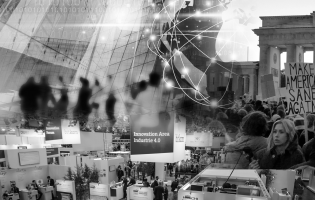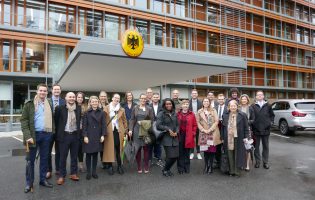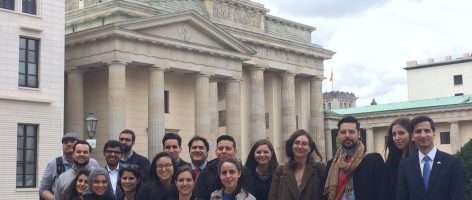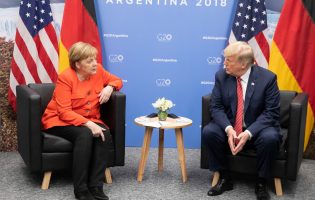
AGI Profiles: Aminata Touré
Deputy Minister-President and Minister of Social Affairs, Youth, Family, Senior Citizens, Integration and Equality of the State of Schleswig-Holstein Born to refugee parents and now one of the youngest politicians …

AGI Profiles: Yvonne Magwas
Vice President of the Bundestag The former Auerbach, Saxony, city councilwoman was elected Vice President of the Bundestag with 600 votes on October 26, 2021—the highest-ranking office left for the …

Either-or? As-well-as?
The logic of hybrid identities and the attempt to break through borders In his last speech as president, Ronald Reagan said, “You can go to France and live there, but …

Chemnitz: A city on the verge of social division and social cohesion
After two years of the pandemic, the AGI group of the Social Divisions and Questions of Identity in Germany and the United States project reunited in Chemnitz for the second …

Dusting Off Local Politics: New Ideas for Political Participation in Rust Belt Cities
Our world today is increasingly marked by social divisions. The political fault lines can be witnessed between liberals and conservatives, generationally between millennials and boomers, or geographically between urban and rural …
Recent Authors
AGI provides knowledge, insights, and networks as tools to solve the challenges ahead.
Support Our Work
The AfD’s Path to Salvini: Winding, Yet Predictable
Earlier this month, the creation of the right-wing populist European Parliament group “Identity and Democracy” (ID) was officially announced. With the Alternative for Germany sending eleven Members of the European …

New Policy Report Now Available
Cooperation or Division? The German-American Relationship in a Changing World Policy Report 70 AGI is pleased to present the written results of the third and final year of its project …

Engaging the Next Generation of Transatlantic Leaders
The project “A German-American Dialogue of the Next Generation: Global Responsibility, Joint Engagement” engages young Americans and Germans in a dialogue on relevant issues within the transatlantic relationship. The participants …

If the Transatlantic Project Is to Become More Attractive for Younger Germans, It Will Have to Open Up to More Diverse Groups and New Issues
The transatlantic idea has been in decline, if less so in the United States, definitely in Germany. Favorable views of the U.S. in Germany and confidence in American presidents as …

Engaging the Next Generation of Transatlantic Leaders
Foreign & Domestic Policy Recommendations During the course of the 2018-2019 project “A German-American Dialogue of the Next Generation: Global Responsibility, Joint Engagement,” the Foreign & Domestic Policy Group focused …

Museum Diplomacy at the Crossroads
The end of 2018 was a busy time on the museum stage. By this I do not refer to any particular million-dollar masterpiece acquisition at the Tate or at the …

Keeping the “Evidence” in U.S. and German International Assistance
This past year saw a significant decline in development aid—a decrease of 3 percent to the world’s least developed countries, and of 4 percent in aid to Africa. Particularly in …

Transatlantic Responses to the “China Challenge,” and the Changing Dynamics of Global Development
The past decade has been distinguished by the looming question of the “China Challenge,” which has often been characterized as the biggest threat to the liberal world order and democracy …
Democracy and Human Rights Promotion in Times of Shrinking Civic Spaces
International democracy and human rights promotion—a foreign policy endeavor that governments on both sides of the Atlantic have espoused for decades—has been faced with severe challenges in the past years. …




